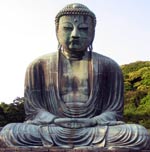 | 1. Lord Buddha- Founder of Buddhism. Gave up the comforts of being a Prince in a palace to seek enlightenment in the forests. After gaining the experience of Nirvana, Lord Buddha spent many years travelling India teaching his philosophy of enlightenment and peace. |
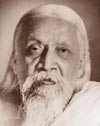 | 2. Sri Aurobindo- One of the key figures in the early Indian Independence movement, Aurobindo argued for nothing less than full independence. He retired from politics to devote the remainder of his life to spirituality in the French enclave of Pondicherry. Become one of the greatest poets, philosophers and Spiritual Masters of the twentieth century. |
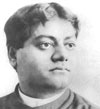 | 3. Swami Vivekananda- The indomitable spirit of Swami Vivekananda awoke in his fellow Indians a renewed sense of pride and self-belief. Vivekananda embodied both the spirituality of ancient India and the dynamism of the West. He became renowned in the West after his inspirational message of Religious tolerance was heard at the World Parliament of Religions 1983. |
 | 4. Mahatma Gandhi- The foremost political leader of the Indian independence movement. For over two decades, Ghandi strove for a peaceful overthrow of British rule. Inspired millions with his philosophy, resolve and commitment to independence and also to alleviating the plight of women and the 'untouchable' caste. |
 | 5. Sri Krishna- The hero of India's classic - the Bhagavad Gita. It was Sri Krishna who taught to Arjuna the sublime philosophy of yoga contained in the Gita. It was Sri Krishna who brought religion and spirituality to everyone. Sri Krishna also developed a new path of yoga - bhakti yoga, the yoga of devotion. |
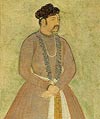 | 6. Akbar- The Great Moghul Emperor who united India and became a beacon for religious tolerance. Akbar took great ginterest in all aspects of his government and introduced laws which were very enlightened and progressive for his time. |
 | 7. Jawaharlal Nehru- The first Prime Minister of an Independent India 1947. Nehru became a very well respected international statesman who steered his country through the difficult period following independence. |
 | 8. Rabindranath Tagore- The Seer-Poet of modern India. Tagore, was the first Indian to be awarded the Nobel Prize for Literature in 1913. A consummate poet, composer and artist. Returned his knighthood in protest at mistreatment of Indians by the British. |
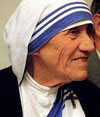 | 9. Mother Teresa- Mother Teresa was born in Albania, but, she made her home in the slums of Calcutta. Her compassion and selfless service to the underprivileged of India and the whole world, slowly won the hearts of a her fellow Indians. |
 | 10. Ashoka- One of the greatest Indian rulers of all time. Ashoka the Great ruled from 269 BC to 232 BC he embraced Buddhism after a bloody battle and became known for his philanthropy, and adherence to the principles of non-violence, love, truth and tolerance. |









